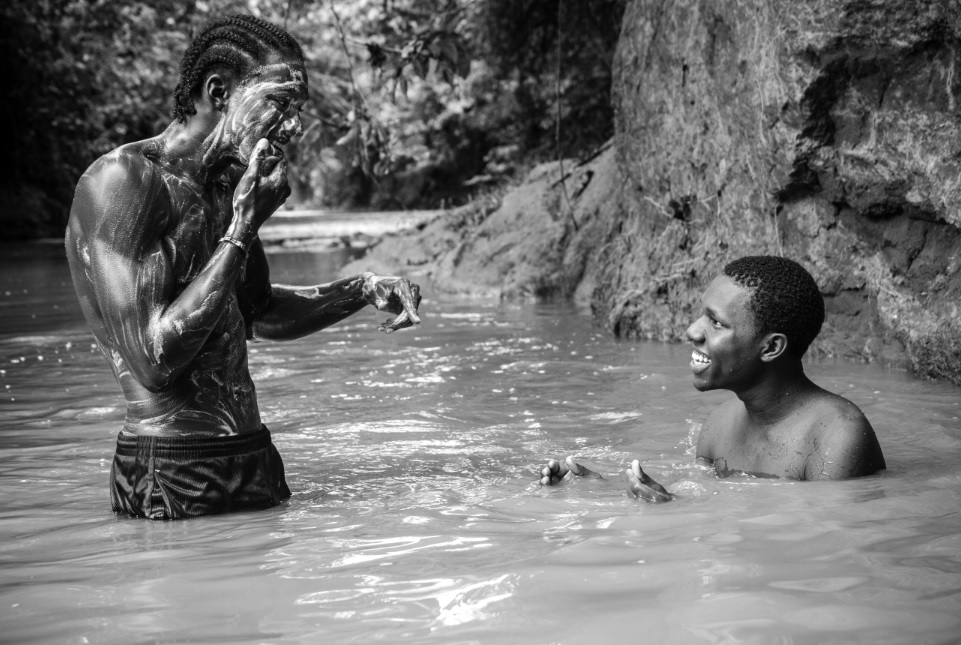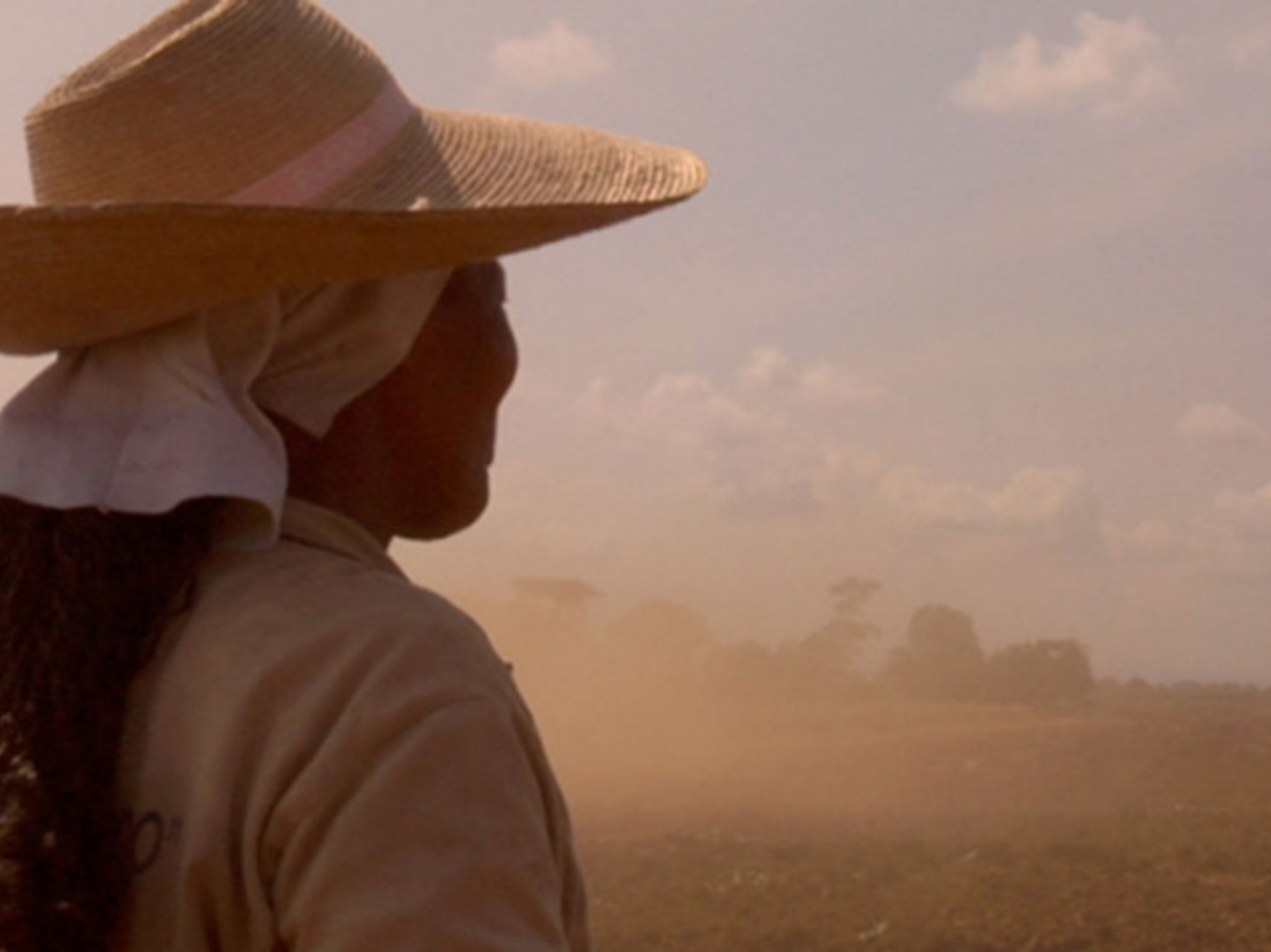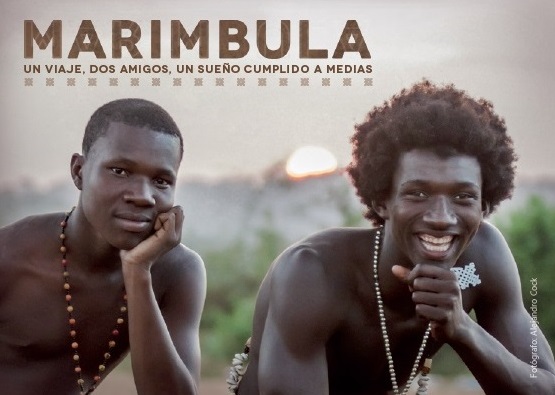Duración: 70 minutos
Directora: Diana Kuellar

Desde su niñez, Andris y Gabriel (21 y 18 años) sueñan con viajar a África, algo natural en todos los palenqueros quienes han vivido bajo la influencia de Benkos Biohó, el héroe libertador que se reencarna en cada generación. Nuestros protagonistas son herederos de su legado y están dispuestos a regresar a la tierra de donde partieron sus antepasados. Gracias a los relatos de los abuelos y de uno que otro africano que ha pasado por el pueblo, ellos se han creado una idea de cómo es este continente.
Por fin el viaje es una realidad y emprenden hacia Senegal con la Marímbula que mandaron a construir. La población tiene expectativas con ellos, pues son los primeros de su generación que emprenden la ruta de regreso de sus ascendientes. Palenque es la pequeña Africa en América y por eso esto será como el encuentro de dos hermanos que no se conocen.
Una vez en Dakar descubren que ser negros allí no es tan importante como lo pensaron. Le es negada la entrada a Andris y es deportado a Colombia. Los amigos son obligados a separarse. Este choque hace que se despierten sus miradas “inocentes” ante el mundo.
Ahora, Gabriel solo y con la Marímbula a cuestas arranca una travesía por Senegal y nos adentra por un camino con personajes y situaciones que descubren una África no imaginada; a veces miedosa y desconcertante, a veces hermosa y fascinante.
Durante su trayecto, el joven palenquero tiene experiencias que le generan evocaciones de su tierra en Colombia. Todo el tiempo está comparando y encontrando puntos convergentes entre Palenque y Africa.
Finalmente Gabriel llega al corazón de Senegal, muy cerca de donde era Biohó y descubre, entre otras cosas, que el Africa que él busca está en Palenque.
A veces es necesario ir lejos para encontrarse a si mismo y su lugar en el mundo.
***
Since their childhood, Andris and Gabriel have always dreamed about going to Africa. The links between the black continent and their village have been growing and getting stronger to a point where this vision is natural for San Basilio de Palenque inhabitants. They have all grown under the influence of Benkos Biohó’s legend, local freedom fighter hero, and they all feel inheritors of his legacy. Gabriel and Andris, our young musicians, are willing to fulfil Benkos’ dream: being able to go back into his land.
They leave like this to Senegal, trustful about creating a cultural bridge through music. In order to reach this purpose, a local artisan built a Marímbula, a native maroon musical instrument, and they composed a song. They take with them their neighbour’s expectations, and leave behind their families, loves and known ground. A long airplane trip leads them to Dakar. Once the plane landed, they find out an obstacle: Andris, the older one, has been refused to enter the country. A visa problem (besides the suspicion generated by a Colombian citizen), forces the friends to separate. This first clash is a glaring indicator about how the world really works. At this point, race brotherhood, or cultural appeals seem poorly interesting… things are not the way people believes in Palenque. Hopelessly, with a twenty-one years old person tears, Andris must go back. Their common dream will be accomplished halfway.
Gabriel is eighteen years old and has never left Palenque before. His friend and guardian is not at his side. He’ll be forced to bravely walk the streets with his Marímbula. This journey, with new unplanned circumstances, promptly becomes a discovery adventure. The curious nature of our Marímbula marooned player leads us down a path full of characters and situations allowing us to penetrate the feelings of the Senegalese people. Gabriel begins to discover that the ideas he had about his homeland are far away from reality: everything is different in Africa. “The real Africa is in Palenque”, confesses our character to an African friend.
Along the path, Gabriel misses more and more his country and his friend. Finally, reality’s disenchantment, love for the imagination of his people, and above all, the distance of the beloved ones, make Gabriel experience the pressing necessity of returning to his San Basilio de Palenque.
Only there he’ll realize: he did came back to his land, Palenque, something Benkos Biohó never could achieve.
Para más información, por favor contactar // For forme information, please contact:
makingdocs@makingdocs.org
dianakuellar@makingdocs.org


